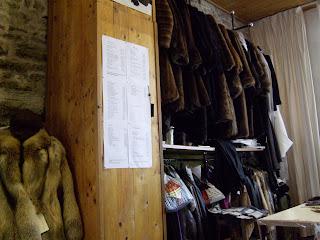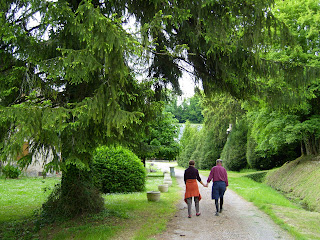
"Bienvenue Chez les Ch’tis" was such a success that more than a third of the French population had purchased a ticket to director and star Dany Boon’s modestly budgeted comedy. This most watched movie in the world in March 2008 was still on screen in the cinema when I was there in end May. Ernest and Nicole had watched it once, but they so enjoyed it that they would like to share the joy with me. Thus, after our respective appointments in town on Monday, we went to the Mégarama which was located on the outskirts of Besançon.
The story was simple: A disgraced postal supervisor found himself transferred from the sunny Sopthern France to the bleak, linguistically challenged French-Belgian border region of Nord-Pas de Calais. He departed with the sad idea that his new life would be a nightmare but ended up discovering that the new environment was filled with warmth thanks to friendly inhabitants and helpful colleagues.
I would say that my life in Besançon was another version of the movie. When I left my family and school friends in January 1995, I thought that was the end of my happy life, although I was the one who had made the decision to explore France for the following years.
An organization was arranging my language courses in Besançon, a name which was totally unknown to me. Before my departure, I roughly studied the map of France and learnt that the city was located in the eastern part of France, near Switzerland and Germany. Being a South-East Asian girl who had always stayed in a small town and only obtained limited knowledge on Europe through a few geography text books in school and travelling books, I was very ignorant of the general differences among western countries and their languages.
When I first arrived in France on 6 January 1995, I was foreseeing myself to be a loner despite the fact that I was in a group of ten Malaysians. During the following eight years, I encountered so many wonderful friends and families in Besançon that I treated this city as my second home town. Thirteen years later when I stepped on the territory of France again, I knew that somewhere in this cold region of Franche-Comté, Besançonese were always welcoming me with warm and open arms.





















































